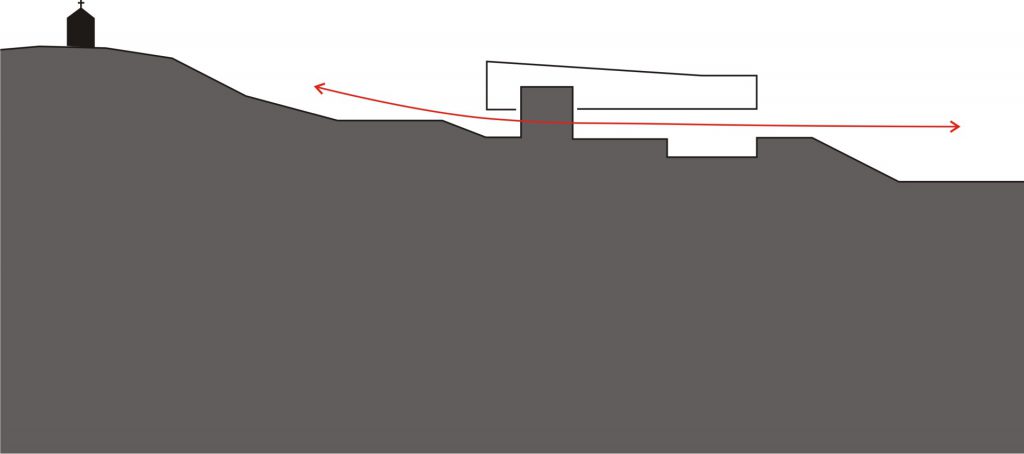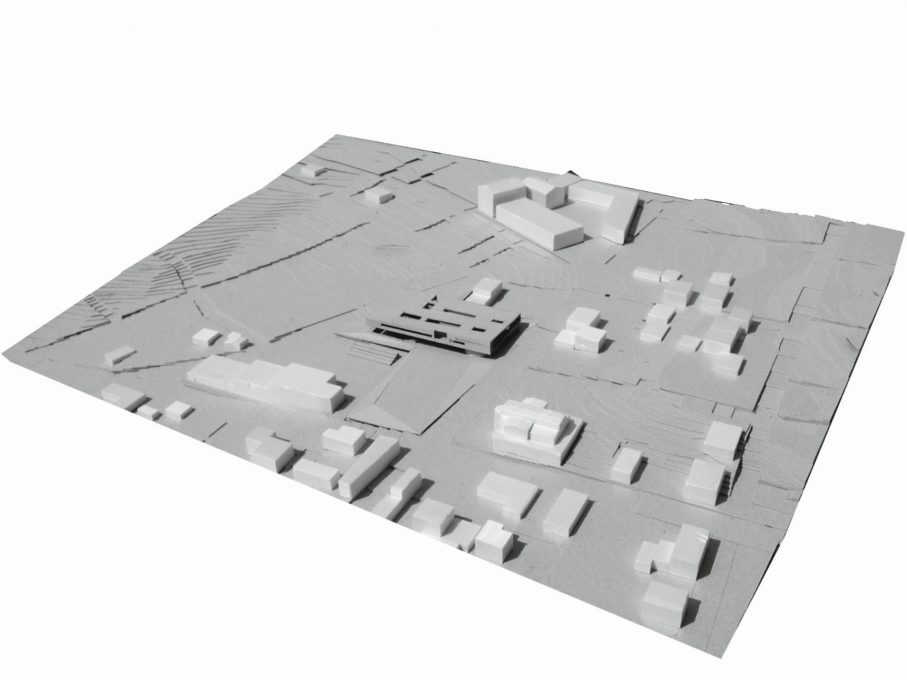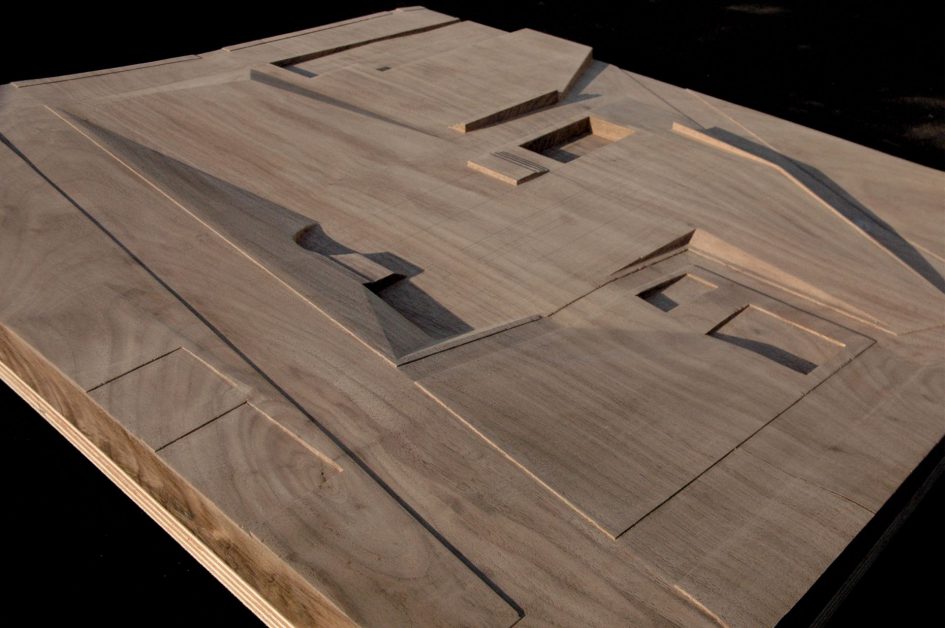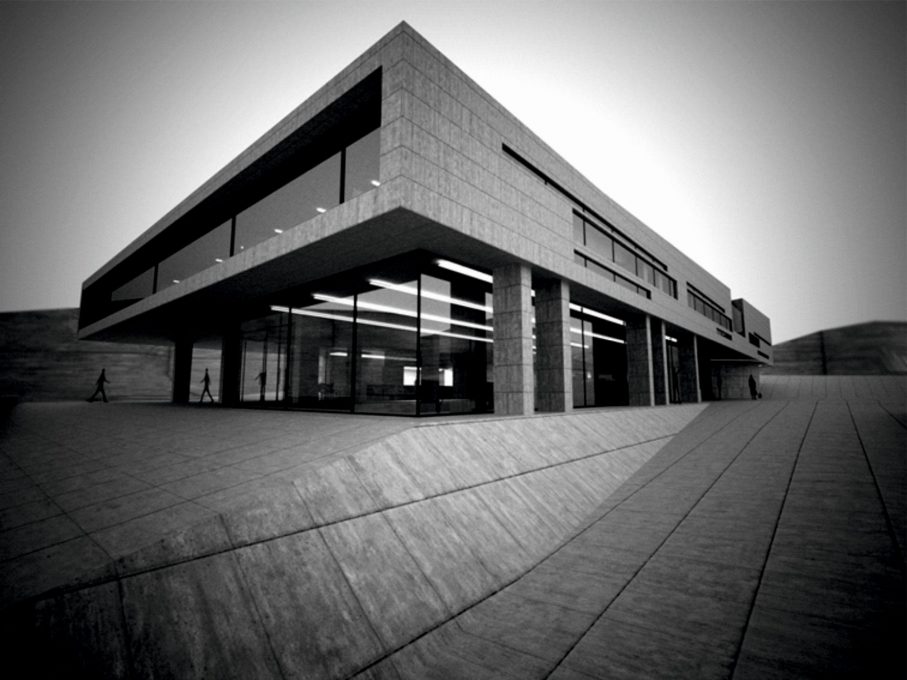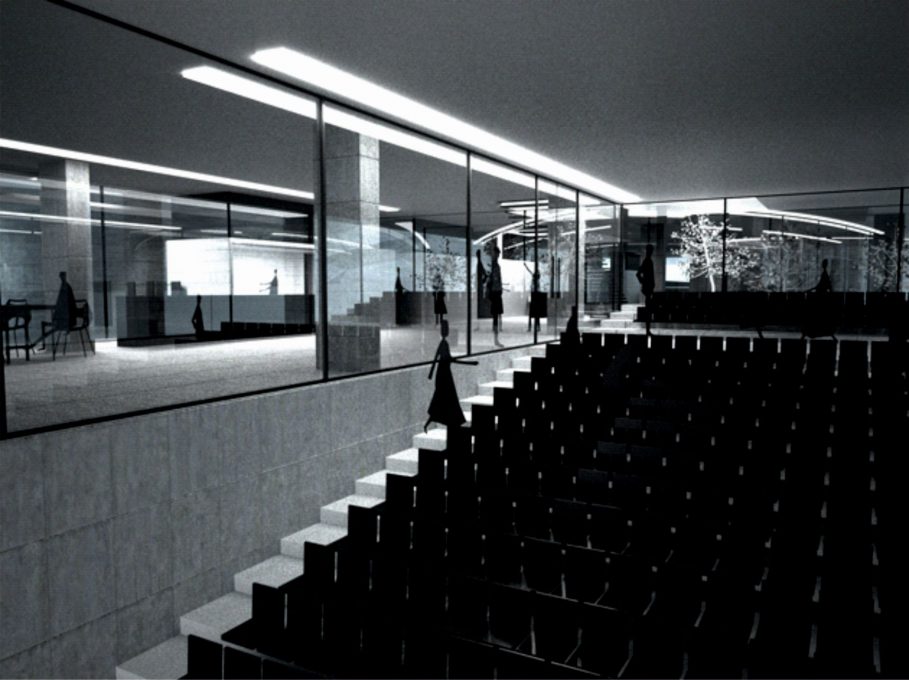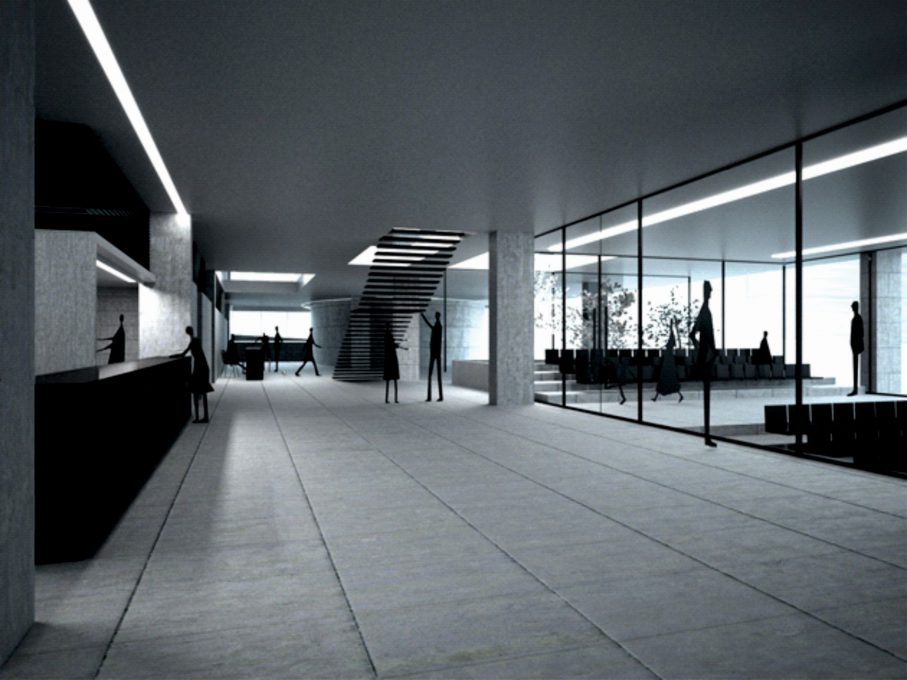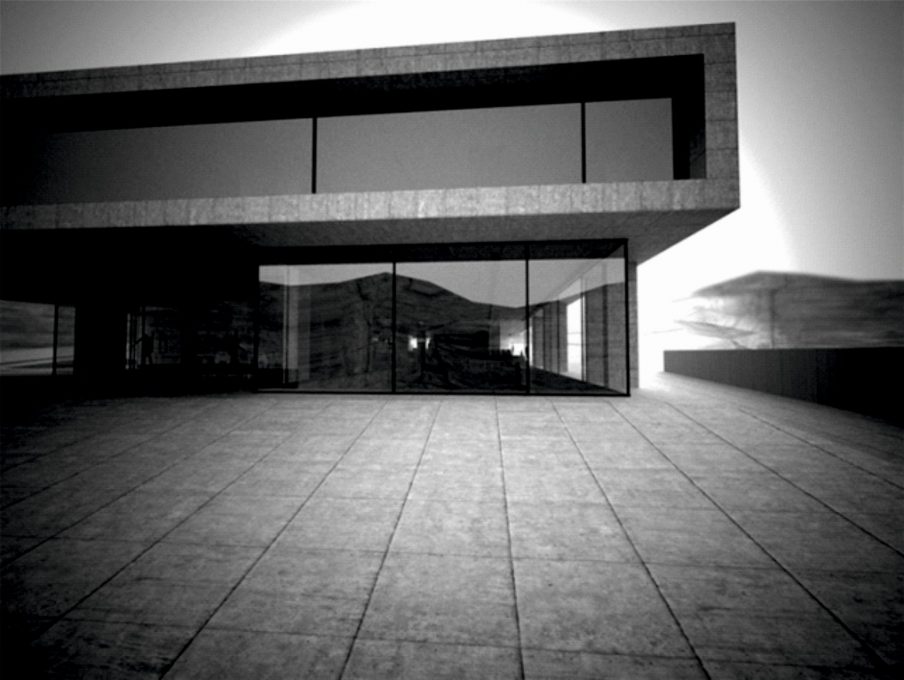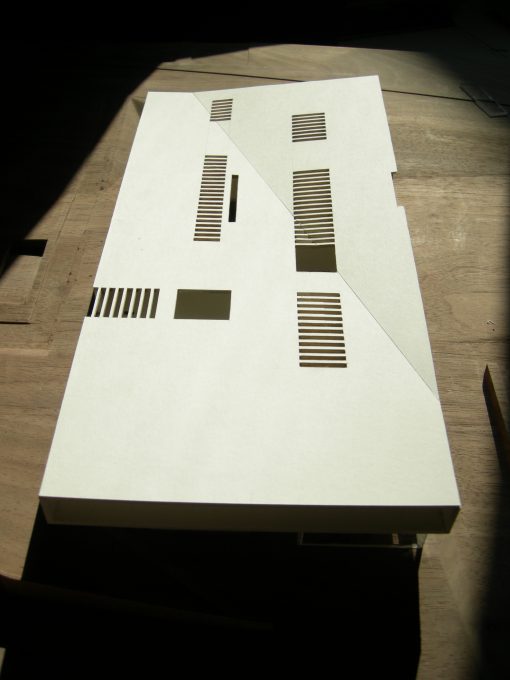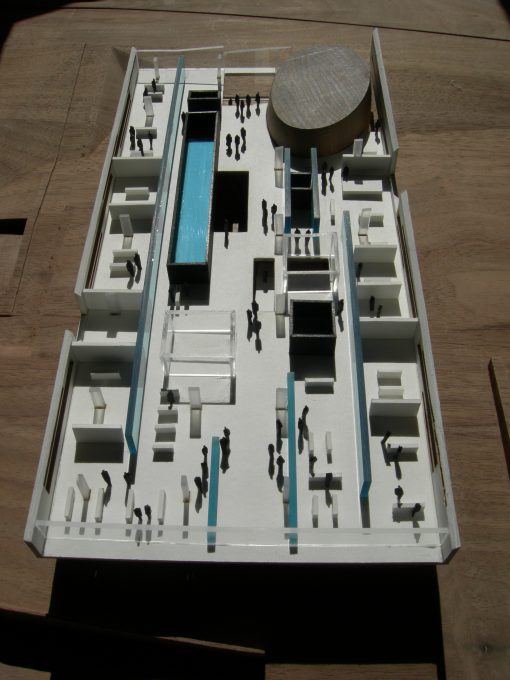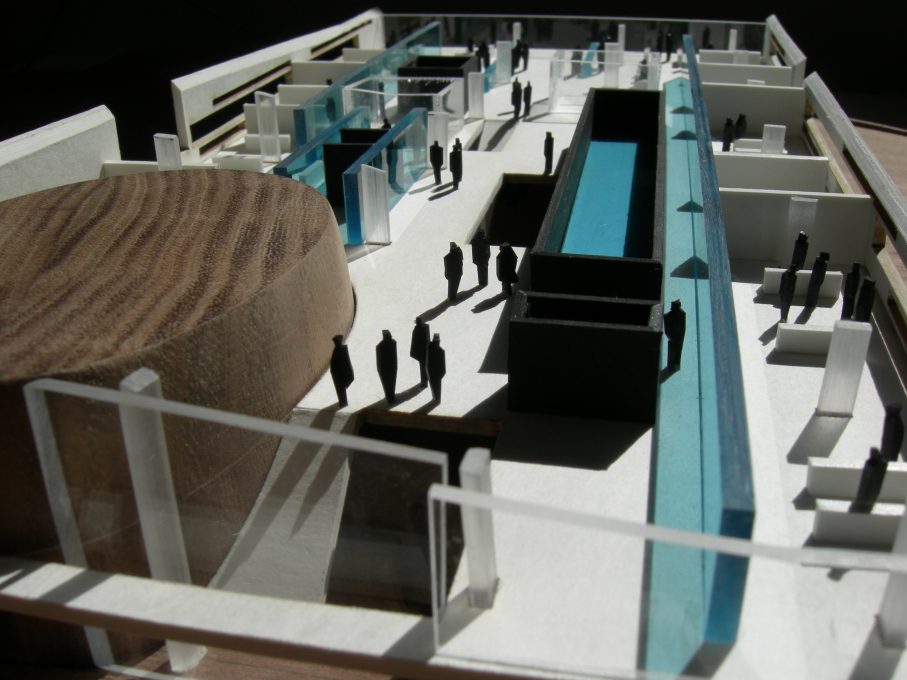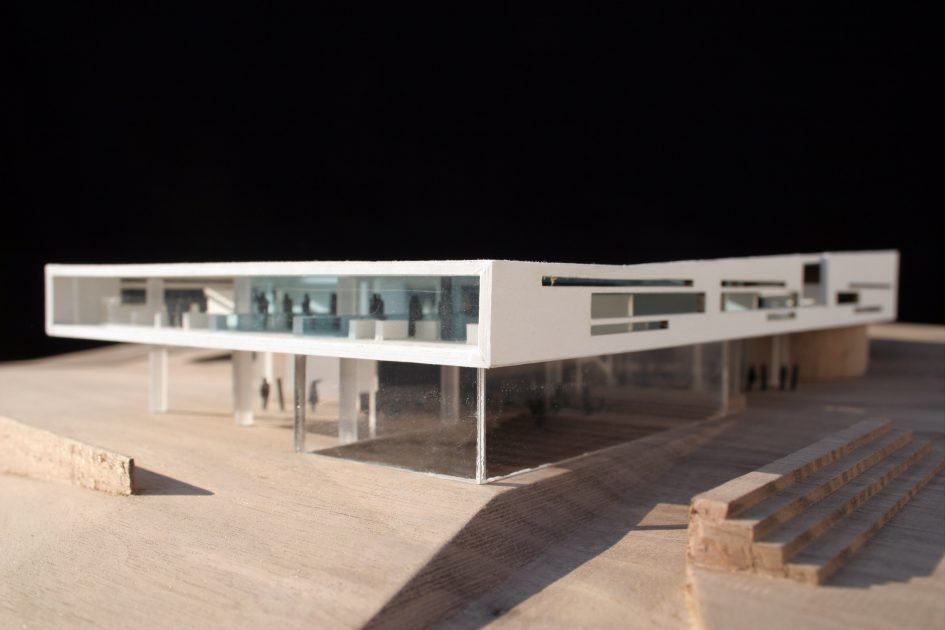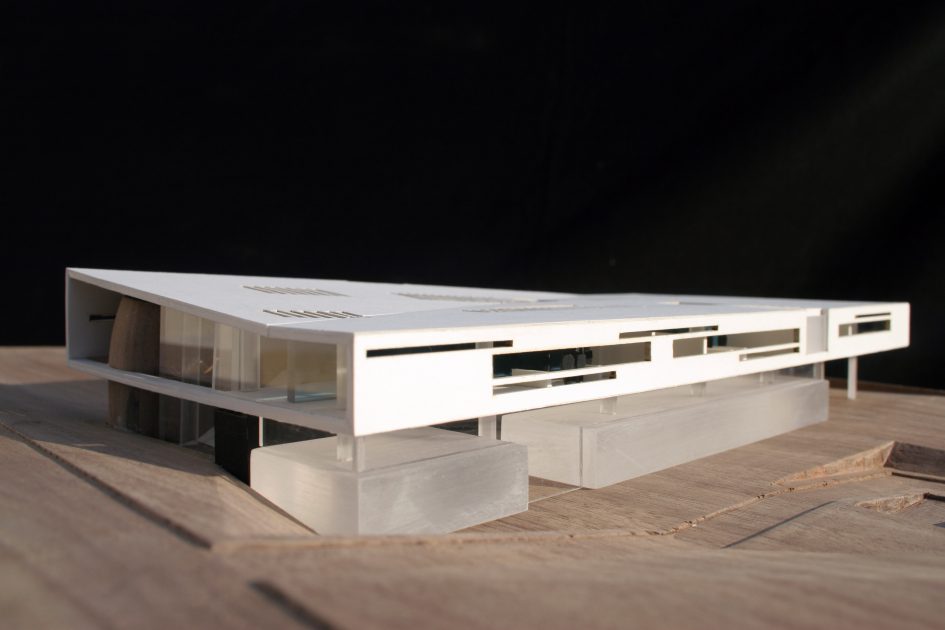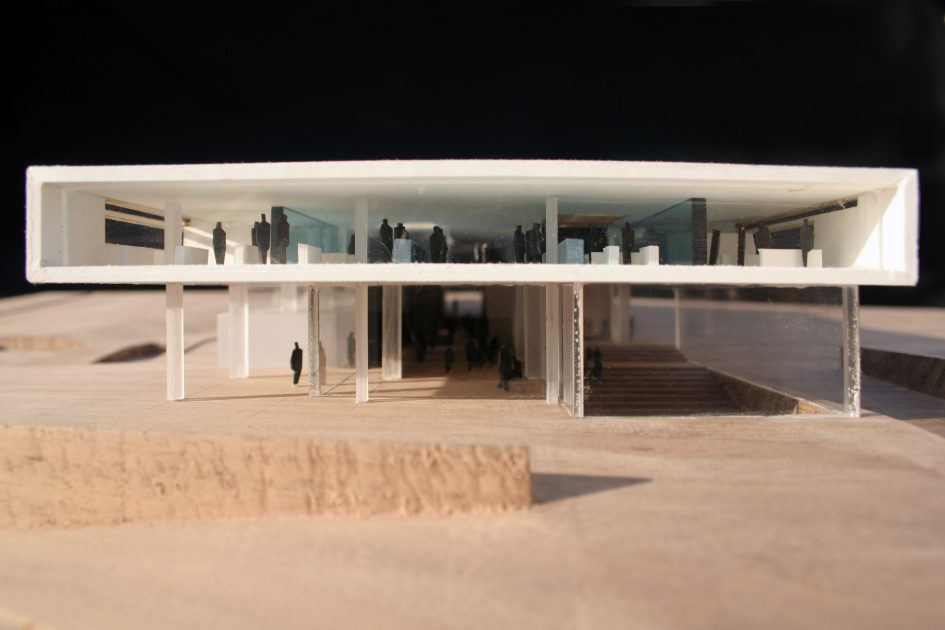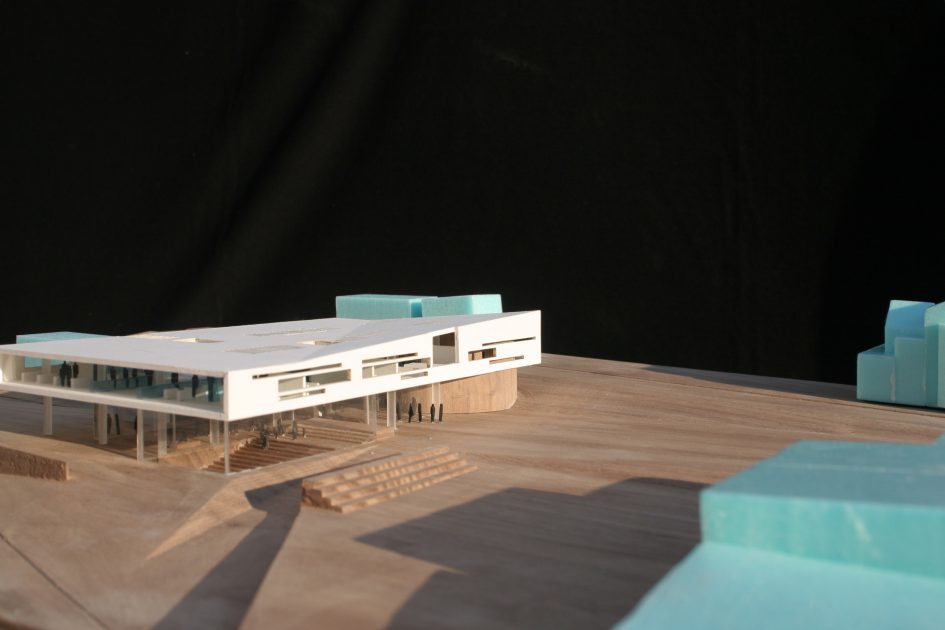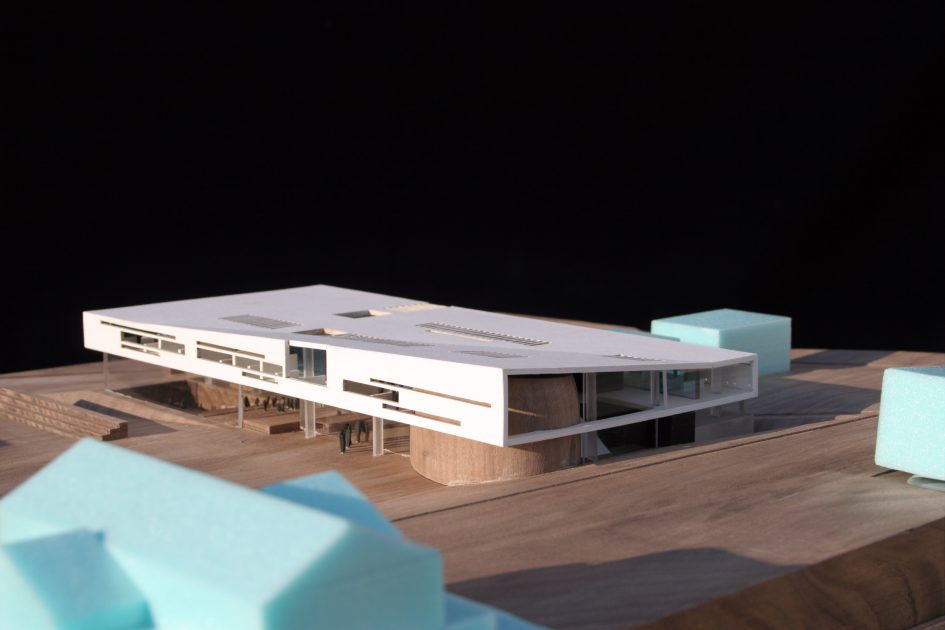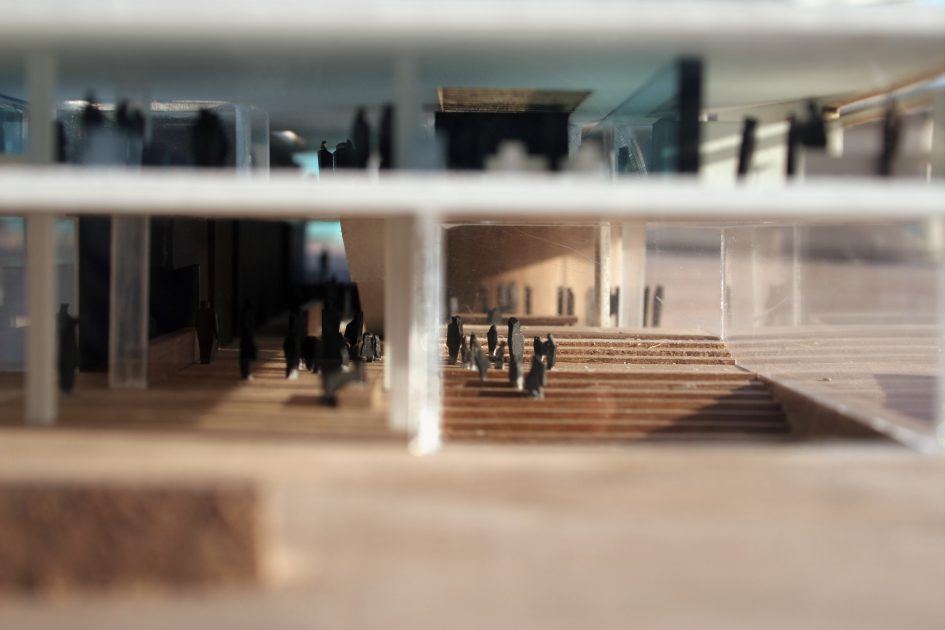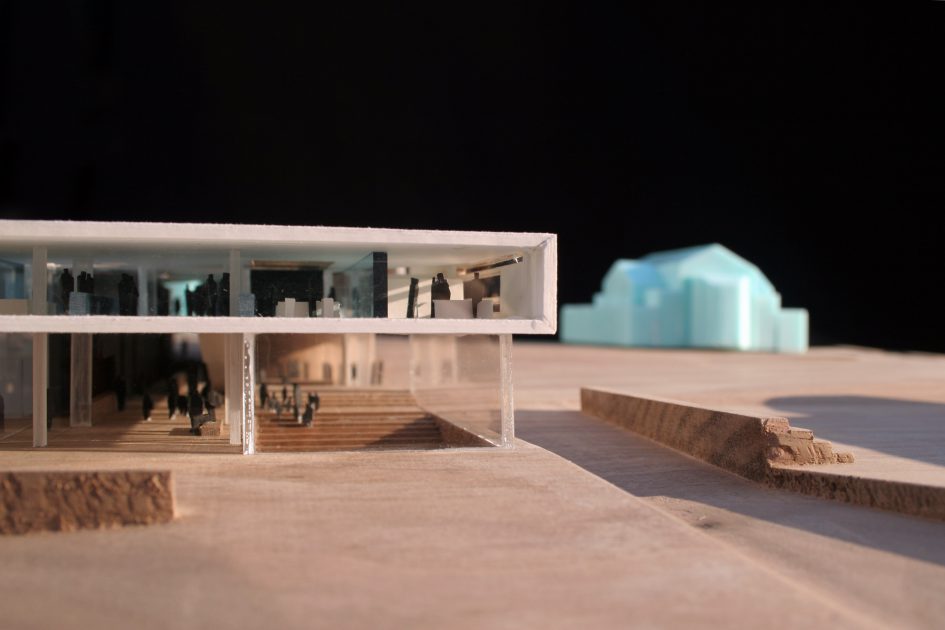A Town Hall’s particularity comes from its double nature: it is a functional public space, where, on the one hand the municipality’s most important decisions are taken in representational or direct manner and on the other it serves and informs the citizen on different possibilities and actions on the local level. It is therefore a building with public character which incorporates the first level of a participatory democratic process. Therefore, the Town Hall has a clearly defined functional character but also a particular symbolic character as it is the most important reference for the local community and its evolution.
In the present case, the building’s urban role is not to complete a void within the existing urban tissue, but to become a core of development for the city and an example for further architectural interventions. That goes not just for the building itself, but also for its open space, which, by expanding the building’s internal functions acquires the same symbolic and functional importance as the building itself.
Therefore the Town Hall should be an easily recognizable public building, particularly functional and pleasant for staff and visitors alike, open towards the citizens, who should be able to use it in the most accessible manner, either as a citizens who participate in the decision making processes, either as visitors who accomplish an ordinary task, or as simple passers-by. The Town Hall as functional and architectural reference point has to have a subtle monumental character adjusted to the local particularities, to express those, as well as the place’s origins and dynamics. It cannot be a boring office space, nor can it be left to pointless and ephemeral formalism. At the same time, it should absorb and summarize the culture and history of the city, without reverting to picturesque loans. It should be an attractor offering the most possibilities for the municipality’s creative development.
Concept
